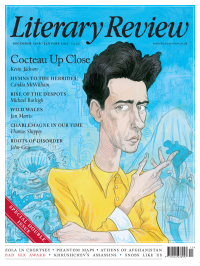David M Lubin
The Boy from Boston
A Revolution in Color: The World of John Singleton Copely
By Jane Kamensky
W W Norton & Co 526pp £25
As Jane Kamensky’s brilliant new biography demonstrates with insight and elegance, John Singleton Copley had one of the great second acts in any artist’s life. When Copley, colonial America’s leading portrait painter, ran into the juggernaut of the Revolution, he reluctantly left his homeland, never to return. Setting up shop in London, he produced some of the most influential history paintings in Western art. During this phase of his career, he also pioneered new, not always appreciated pathways for the modern artist as a self-promoting, fortune-hunting entrepreneur. It was Copley’s third act that didn’t go so well.
Kamensky conveys all this in a spirited and at times heartbreaking narrative of the painter’s life and the tumultuous world he inhabited. She traces the fault lines of British colonial America in a manner that makes it poignantly clear that the American Revolution was America’s first civil war and

Sign Up to our newsletter
Receive free articles, highlights from the archive, news, details of prizes, and much more.@Lit_Review
Follow Literary Review on Twitter
Twitter Feed
How to ruin a film - a short guide by @TWHodgkinson:
Thomas W Hodgkinson - There Was No Sorcerer
Thomas W Hodgkinson: There Was No Sorcerer - Box Office Poison: Hollywood’s Story in a Century of Flops by Tim Robey
literaryreview.co.uk
How to ruin a film - a short guide by @TWHodgkinson:
Thomas W Hodgkinson - There Was No Sorcerer
Thomas W Hodgkinson: There Was No Sorcerer - Box Office Poison: Hollywood’s Story in a Century of Flops by Tim Robey
literaryreview.co.uk
Give the gift that lasts all year with a subscription to Literary Review. Save up to 35% on the cover price when you visit us at https://literaryreview.co.uk/subscribe and enter the code 'XMAS24'